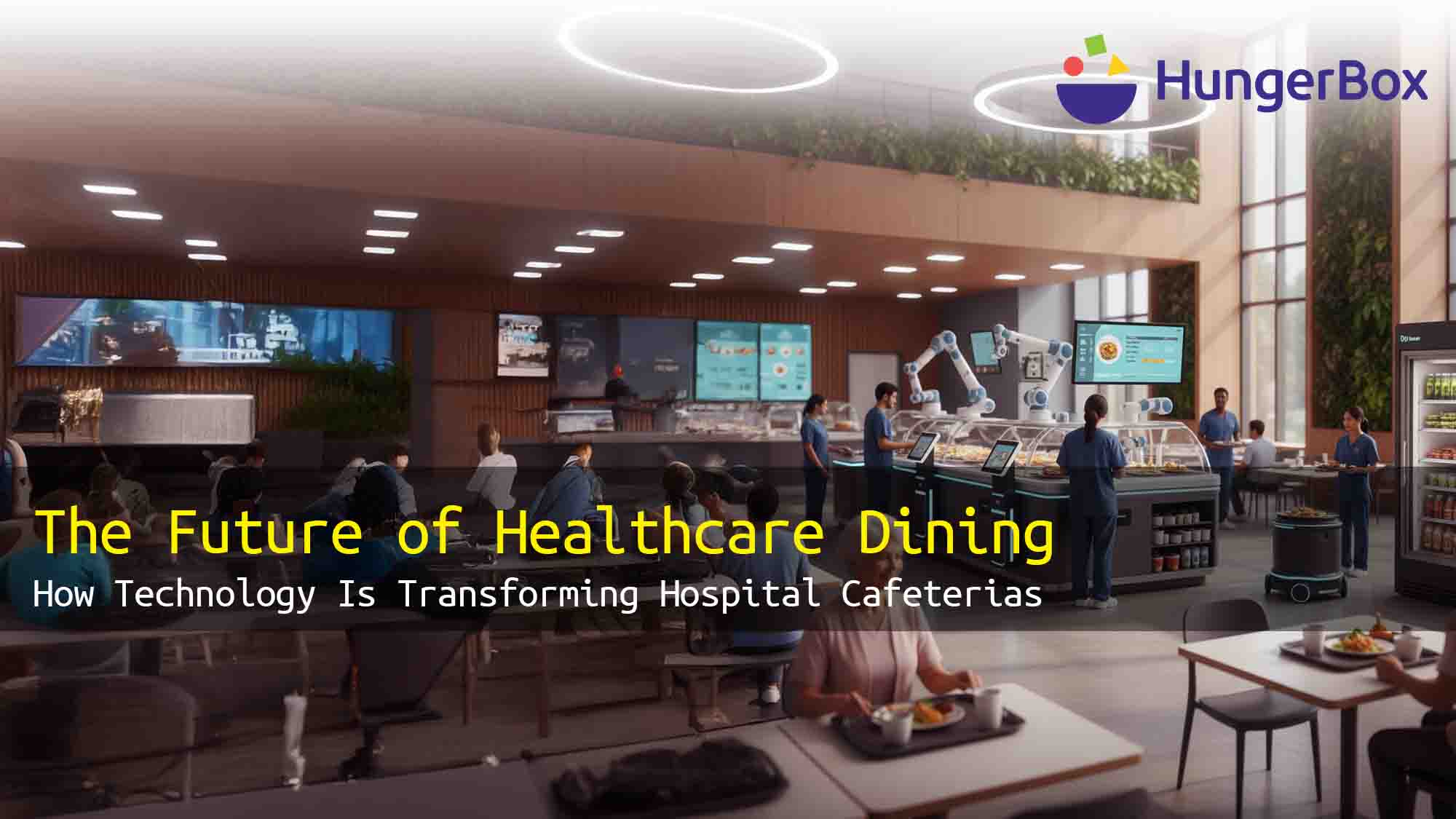
The Future of Healthcare Dining: How Technology Is Transforming Hospital Cafeterias
Hospital cafeterias have always played a crucial role in the healthcare ecosystem - not just as a place to eat but as a hub for wellness, efficiency, and community. In 2025, the hospital cafeteria is no longer just about serving food. With digital transformation sweeping across the healthcare industry, technology is redefining how hospitals approach dining services. From patient experience and staff efficiency to food safety, compliance, sustainability, and cost optimization, the hospital cafeteria is evolving into a smarter, data-driven ecosystem.
Enhanced Patient Experience
Patients today expect hospital dining to be an extension of their care. Gone are the days of one-size-fits-all meals served at fixed times. With technology, hospital cafeterias can now:
- Offer Personalized Menus: Digital ordering platforms allow patients to choose meals based on dietary restrictions, allergies, and doctor-recommended nutrition plans.
- Enable Room-to-Cafeteria Integration: Patients can pre-order meals via bedside tablets or apps, ensuring timely and accurate delivery.
- Provide Transparency: Nutritional information, allergen alerts, and ingredient sourcing details build trust and improve satisfaction.
This level of personalization transforms hospital dining from a basic service into a therapeutic and patient-centric experience.
Improved Staff Efficiency and Productivity
Hospital staff often face demanding schedules with limited time for meals. Technology-enabled cafeterias address this challenge through:
- Pre-Ordering and Quick Pickups: Staff can order meals in advance and pick them up during short breaks without waiting in long lines.
- Slot-Based Dining: Digital scheduling tools help reduce congestion by staggering meal times.
- Cashless Transactions: Integrated payment systems save time and reduce manual handling.
The result? Reduced stress, higher satisfaction, and better productivity for healthcare professionals.
Food Safety and Compliance
Food safety is non-negotiable in healthcare settings. Hospital cafeterias must comply with OSHA (Occupational Safety and Health Administration), FDA (Food and Drug Administration), and local health board regulations. Technology provides solutions through:
- Digital Hygiene Checklists: Automated reminders for cleaning, sanitization, and temperature checks.
- Audit-Ready Reports: Real-time compliance logs that simplify inspections.
- Allergen Tracking: Smart menus that filter meals based on patient or staff dietary needs.
By digitizing safety protocols, hospitals reduce human error and ensure consistent compliance across food operations.
Sustainability in Hospital Dining
Sustainability is increasingly important for hospitals balancing patient care with corporate social responsibility. Smart cafeteria systems support green goals by:
- Waste Reduction: Predictive meal planning reduces overproduction and landfill contributions.
- Eco-Friendly Packaging Tracking: Digital platforms encourage vendors to adopt sustainable practices.
- Data-Driven Reporting: Hospitals can showcase their sustainability efforts in ESG and CSR audits.
This not only reduces costs but also strengthens hospitals’ reputations as responsible institutions.
Digital Ordering and Contactless Convenience
The post-pandemic world accelerated the demand for safe, contactless services. Hospital cafeterias have embraced:
- Mobile Apps and QR Menus: Enabling patients, staff, and visitors to browse menus and order with minimal contact.
- Automated Billing: Reducing cash handling and ensuring seamless financial transactions.
- Touchless Feedback Systems: Allowing real-time dining reviews without shared surfaces.
These innovations improve hygiene while offering convenience to everyone who interacts with the hospital cafeteria.
Optimized Costs Through Data and Automation
Hospital administrators are under constant pressure to control operational costs. Cafeteria software provides powerful tools for:
- Real-Time Inventory Tracking: Reducing spoilage and aligning procurement with actual consumption.
- Cost-Per-Meal Analytics: Identifying high-cost areas and optimizing resources.
- Vendor Performance Dashboards: Monitoring service quality, delivery timelines, and contract compliance.
Through automation, hospital cafeterias can reduce overheads, improve accuracy, and achieve long-term savings.
Integrating with Broader Hospital Systems
A hospital cafeteria is no longer a standalone service. It’s part of a larger digital healthcare ecosystem. Modern cafeteria platforms integrate with:
- Hospital ID Systems: Allowing cashless deductions linked to staff or patient ID cards.
- HR and Wellness Programs: Encouraging healthier eating habits tied to employee wellness incentives.
- Electronic Health Records (EHR): Aligning patient meal plans with medical prescriptions and dietary guidelines.
This seamless integration ensures that dining services directly support both clinical care and organizational goals.
AI and Beyond: The Future of Hospital Cafeterias
Looking ahead, hospital cafeterias will continue to evolve with emerging technologies:
- AI-Powered Forecasting: Using predictive analytics to anticipate meal demand based on patient admissions, weather, and historical data.
- Blockchain for Food Traceability: Ensuring transparency in ingredient sourcing and supply chains.
- AR and Virtual Preview: Allowing patients to visualize meals before selection.
These innovations will redefine the hospital cafeteria as a hub of innovation, wellness, and operational efficiency.
From Food Service to Strategic Asset
Hospital cafeterias are no longer just dining spaces. They are becoming strategic assets that impact patient recovery, staff well-being, operational efficiency, and sustainability. With digital platforms like HungerBox’s hospital cafeteria management solutions leading the way, healthcare dining is moving towards a future that is safer, smarter, and more patient-centric.
In the coming years, the hospital cafeteria will be as much about technology as it is about food. Hospitals that embrace this transformation will not only improve dining experiences but also strengthen their reputation as modern, caring, and forward-thinking healthcare providers. To take the next step, hospitals can schedule a demo to explore customized solutions, visit our contact us page for inquiries, or learn more on our about us page.